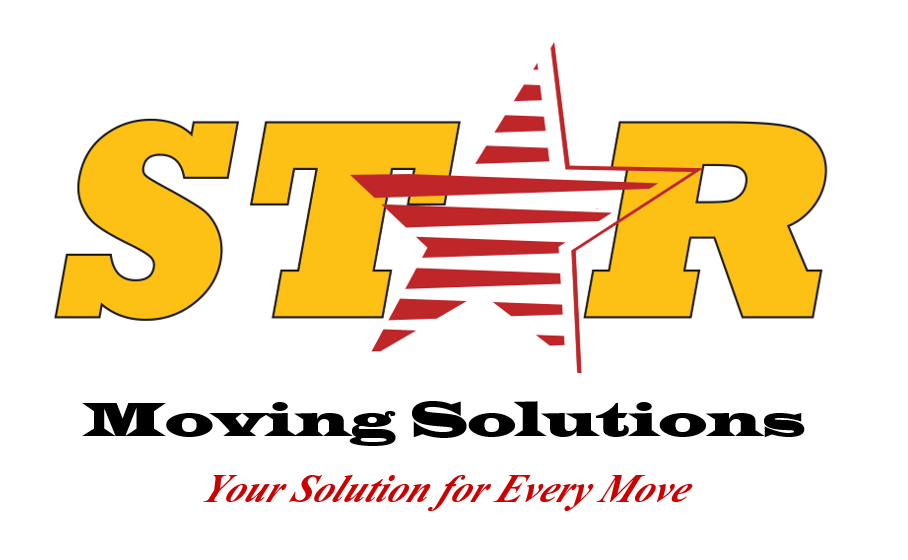How does the process of coordinating an interstate move differ from a local or intrastate move? As you embark on your moving journey, understanding these differences is crucial to ensure a smooth and stress-free relocation experience. In this blog post, we’ll discuss the differences between local, intra-state, and interstate moves; from understanding regulatory requirements to comparing costs and selecting a reputable moving company.
Local Moves vs. Intrastate Moves
Local moves are short-distance relocations within the same city or town, typically less than 50 miles, while intrastate moves involve relocating within the same state but over greater distances. Both types of moves require adherence to specific guidelines set by each respective state’s attorney general office and may necessitate additional preparation, depending on the distance traveled and regional requirements.
Understanding Local Move Regulations
In most cases, local moving companies must follow rules established by their state’s regulatory body for the moving industry. These regulations often include licensing requirements, insurance coverage minimums, and consumer protection measures such as providing written estimates before commencing work.
Preparing for an Intrastate Move
- Determine if your move qualifies as a local or intrastate move based on the distance traveled.
- Contact your state’s attorney general office to understand any specific regulations that apply to your relocation.
- Select a reputable moving company with experience in both local and intrastate moves to ensure proper handling of your belongings during transit.
When it comes to coordinating an interstate move, the process differs significantly from local or intrastate moves. Moving companies that specialize in long-distance moves, also known as cross-state lines or interstate moves, must comply with federal regulations in addition to state regulations.
Interstate Moves
Interstate moves involve crossing state lines and are typically considered long-distance moves. The Federal Motor Carrier Safety Administration (FMCSA) regulates interstate moving companies, and they must have a valid US Department of Transportation (US DOT) number to operate legally. Additionally, interstate moving companies must provide customers with a copy of “Your Rights and Responsibilities When You Move,” a booklet created by the FMCSA that outlines the moving process and consumer protections.
Preparing for an Interstate Move
- Research moving companies that specialize in long-distance moves and have a valid US DOT number.
- Obtain written estimates from at least three moving companies to compare prices and services.
- Ask for references and check online reviews to ensure the moving company has a good reputation.
- Understand the moving company’s liability coverage and consider purchasing additional insurance for valuable items.
Whether you’re planning a local, intrastate, or interstate move, it’s essential to choose a reputable moving company with experience in the type of move you’re making. By doing your research and understanding the regulations that apply to your move, you can ensure a smooth and stress-free relocation.
Local moves may require special considerations and regulations, but with the right preparation they can be managed successfully. As interstate moves involve crossing state lines, additional requirements must be met to comply with federal laws.
Obtaining Licenses from Origin and Destination States
Moving companies involved in interstate moves need to obtain licenses from both the origin and destination states. This ensures that they are operating legally within each jurisdiction and can provide a seamless moving experience for their clients. To verify if a moving company is licensed, you can check with the respective state’s attorney general office or mover’s association.
Complying with Federal Regulations
- Federal Motor Carrier Safety Administration (FMCSA): The FMCSA regulates interstate moves by setting safety standards for moving trucks, drivers, and equipment used in the process.
- Pricing Contracts: To ensure transparency and protect consumers against fraud, all interstate moving companies must provide written estimates based on the weight or volume of items being moved.
- Insurance Coverage: In addition to standard liability coverage required by law, professional movers should offer additional valuation options for extra protection of your belongings during long-distance moves.
Crossing state lines for an interstate move requires additional steps and paperwork that must be completed to ensure compliance with federal regulations. Before embarking on an interstate move, it is essential to be aware of the requirements for different types of moves.

Documentation Requirements for Different Types of Moves
One key distinction between interstate and intrastate moves lies in the required documentation. While local and intrastate moves require acquiring relevant permits/licenses issued by individual states, cross-border operations mandate possession of US DOT numbers that show compliance with national-level mandates. These mandates are aimed at ensuring consumer safety protection throughout the entire moving process on a nationwide basis.
Permits/Licenses for Local and Intrastate Moves
Moving companies operating within state boundaries must adhere to specific guidelines set forth by each respective state’s attorney general office. This may include obtaining necessary permits or licenses that demonstrate their commitment to upholding industry standards and providing quality service to customers.
US DOT Numbers for Interstate Moves
In contrast, moving companies conducting long-distance relocations across state lines are subject to federal regulations. To comply with these requirements, they must obtain a unique US Department of Transportation (US DOT) number, which serves as proof of their adherence to stringent safety protocols, designed to protect consumers during the moving process.
Documentation requirements for different types of moves are essential to ensure the safe and secure transport of goods. It is important to be aware of the various costs associated with coordinating a move, such as packing material expenses, labor costs, and transportation fuel expenses.
Cost Factors in Coordinating Various Types of Moves
Another important factor differentiating interstate moves from intrastate moves relates to the costs associated with various stages involved in the overall undertaking itself. From packing materials utilized, labor employed during loading/unloading phases, to transportation fuel expenses incurred along the way: all these elements contribute to significantly higher price tags attached to longer-distance moves compared to their shorter-distance equivalents.
Packing Material Costs
The type and amount of packing materials required for a move can vary depending on factors such as distance traveled, and fragility of items being transported. Longer moves may necessitate more robust packaging options, increasing costs.
Labor Expenses
Labor expenses typically increase with distance due to extended hours spent on loading, unloading, and driving between locations. Additionally, interstate moves often require specialized expertise from moving companies that may come at a premium cost.
Transportation Fuel Expenses
Fuel costs are another significant consideration when coordinating an interstate move. As distances increase across state lines or even internationally, so too do transportation fuel expenses, which directly impact the overall moving budget.
When considering the cost factors in coordinating various types of moves, it is important to consider packing material costs, labor expenses, and transportation fuel expenses. Selecting the right moving company for your move can help ensure that you get an accurate quote and have peace of mind knowing that all credentials are verified with proper licenses, and insurance coverage levels.

Selecting the Right Moving Company for Your Move
Choosing the right moving company is crucial to ensure a smooth and stress-free relocation experience. To find a reliable mover that meets your specific needs, follow these steps:
- Verify credentials/licenses/insurance coverage levels: Ensure the moving company has proper licenses and insurance policies in place. For interstate moves, check if they have a valid US DOT number by searching on the Federal Motor Carrier Safety Administration (FMCSA) website.
- Obtain free quotes for comparison purposes: Request multiple quotes from different moving companies to compare prices and services offered. Be cautious of unusually low estimates as it may indicate subpar service or hidden fees.
- Evaluate customer reviews/testimonials: Check online review platforms like Yelp or Google Reviews to gain insight into previous customers’ experiences with potential movers.
- Inquire about additional services: Some companies offer packing, storage solutions, or specialty item handling which could be beneficial depending on your move’s requirements.
Taking time to research and select an experienced moving company will help make your local, intrastate, or interstate move more manageable while providing peace of mind throughout the process. When it comes to coordinating an interstate move, there are some differences to keep in mind compared to local or intrastate moves.
Interstate moves, also known as long-distance moves, involve crossing state lines and require additional planning and coordination. Moving companies that specialize in interstate moves must comply with federal regulations and have a US DOT number. They may also offer additional services such as packing, loading, and unloading to ensure a smooth transition.
On the other hand, intrastate moves are within the same state and do not cross state lines. While they may not require as much planning and coordination as interstate moves, it’s still important to choose a reputable moving company that can handle your specific needs.
Regardless of the type of move, selecting the right moving company is essential to ensure a successful and stress-free relocation. Take the time to research and compare different moving companies to find the one that best fits your needs.
Selecting the right moving company for your move is essential to ensure a smooth transition and minimize stress. It’s vital to factor in storage solutions while organizing a move to guarantee an effortless transition and reduce tension.
Storage Solutions during the Relocation Process
When it comes to storage services for belongings that need temporary housing while relocating, professional moving companies often offer storage solutions tailored to individual needs. This alleviates some stress associated with the transition period itself by providing a safe and secure environment where items can be stored.
Types of Storage Options Available
- Self-storage units: These are individual, lockable spaces that come in various sizes and can be rented on a month-to-month basis.
- Portable storage containers: A convenient option where the container is delivered to your home, filled with your belongings, and then transported to a secure facility or directly to your new residence.
- In-house storage facilities: Some moving companies provide their own climate-controlled warehouses for short-term or long-term storage needs.
Factors to Consider When Choosing a Storage Solution
- The duration of time you will require storage services – this may affect pricing options available from different providers.
- The level of security provided by each facility – ensure they have measures such as surveillance cameras and gated access in place.
- Ease of accessibility – consider whether you’ll need frequent access to your stored items during the relocation process, before deciding on which solution best suits your needs.
Conclusion
The process of coordinating an interstate move differs significantly from a local or intrastate move. Local moves are generally less complicated and require fewer regulations to follow, while interstate moves come with unique challenges and federal regulations that must be followed. Additionally, costs for each type of move vary based on factors such as packing materials, labor, transportation expenses, and storage services.
When selecting a moving company for any type of relocation, it’s essential to research thoroughly and compare quotes from multiple providers. Star International is a trusted moving services provider with years of experience in handling all types of relocations. Reach out to us today for assistance in coordinating your relocation – Star International is the perfect choice for all your moving needs!














